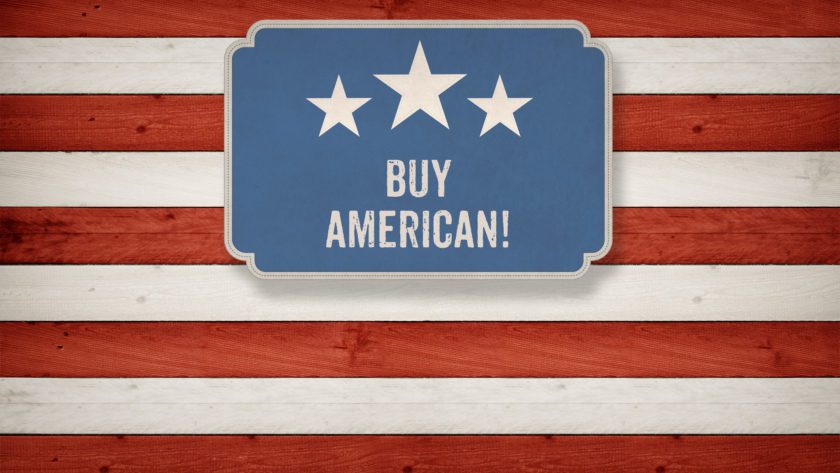For a lot of people, Labor Day means three things: a day off, the end of summer, and a backyard barbecue. But why is the first Monday in September called Labor Day? It seems Labor Day is one of those holidays where the meaning has been lost over the years. Here’s what Labor Day means and some ways to make it more meaningful.
Why Is It Called “Labor” Day?
Labor Day was originally established in 1894 as a national holiday to pay tribute to the American worker and celebrate their achievements.
It’s actually something we should try to do every day of the year, and we can do so by buying things made in the USA.
Ways to Pay Tribute to American Working Men and Women
- Go on a “Made in USA” label-reading mission at the supermarket, mall, and in your home.
- Plan your gift list and seek out American-made.
- Buy your pet some treats made in the USA.
- Gather with family, have a barbecue, and relax!
How to Support American-Made Products
1) Buy less.
As a general rule, try to limit consumption to things you really need or really want. A lot of those special deals may be really inexpensive because they’re imported.
2) Be loyal to brands that are made in the USA.
3) Read labels.
- U.S. companies outsource part or all of their production to destinations, such as China and India, due to the availability of cheap labor and raw materials.
Examples:
- Levi’s (one of the most patriotic brands in America) — As of 2019, the vast majority or Levi’s are made overseas.
- Gerber Baby Food (owned by Nestle) — Gerber opened a factory in China. Rice comes from China. According to the FDA, toxic elements are present in the environment and enter the food supply through soil, water, or air.
- Rawlings — The MLB baseballs of America’s favorite pastime are made in Costa Rica.
- American Girl & Barbie — These dolls are predominantly made in China. In 2007, 19 million toys were recalled for being harmful to children. They either contained small, powerful magnets that could be swallowed and harmful lead paint.
- Read the labels on all the items you buy, such as packaged food, frozen vegetables, baby food, pet food, toys, toothpaste, sports equipment, clothing, and furniture.
- Teach your children to read labels.
- Supplements, such as protein supplements and vitamins, are not regulated by the FDA. Be aware of some of the fillers and where they are sourced.
What the “Made in the USA” Label Really Means
1. A company that manufactures on U.S. soil is NOT required to seek approval to use the “Made in the USA” label on their products.
The only requirement is, according to the FTC, that the product be “all or virtually all” made in the USA. That is up to the individual companies to determine. The Federal Trade Commission has set up some guidelines to help the company decide if their product fits the label or not.
The only way the FTC knows when a company is misusing the “Made in the USA” label is if it receives complaints and then investigates. There is no system of review. Since the FTC is responsible for preventing deception in the marketplace, their primary concern is that the label is not misleading to consumers.
2. According to the FTC, “all or virtually all” means that all significant parts and processing that go into the product must be of U.S. origin.
That is, the product should contain no (or negligible) foreign content. Consider what “negligible” means. In an appliance, it may not be significant, but in baby food or pet food, it could be. This is how pet food labeled “Made in USA” could still contain an ingredient that is made in China.
3. The only products that are REQUIRED to be labeled “Made in the USA” are automobiles and textile, wool, and fur products.
Textiles manufactured in both the U.S., and another country, must have all countries on the label.
4. If a product carries the label, “Assembled in the USA”, it must have undergone a “substantial transformation” on U.S. soil.
An electronic device, put together from all foreign parts cannot be labeled “Assembled in the USA”, unless the origin of those parts are known. This is why you see, “Assembled in the USA from foreign components” on some labels.
5. “Made in the USA” with disclaimers — For example, a board game may be labeled “MADE IN USA” but look for the small print, such as “tokens made in China”.
Karen’s Fit Tips:
- Scrutinize labels.
- Commit to buying American when you can.
- Don’t take chances with ANYTHING you eat or apply on your skin.
- Don’t assume the products that are typically “American” are made in America.
- Be loyal to brands that are made in the USA.

